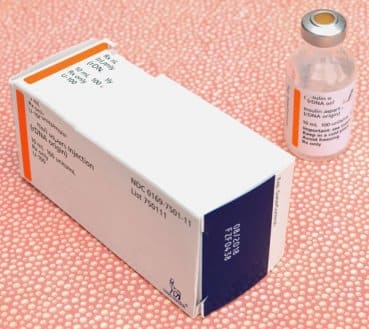What is fasting hypoglycemia?
Hypoglycemia occurs when the blood glucose levels fall below the normal range. Clinically, it is defined as a blood sugar level of less than 60mg/dL. Being an important source of energy, glucose is mostly obtained from the food we eat. An inadequate level of glucose may affect the function of the body, and have a detrimental effect on your overall wellbeing. There are many factors that could cause hypoglycemia. This includes excessive exercise, foods and, more commonly, medications. Fasting hypoglycemia is a form of non-diabetic hypoglycemia that rarely happens. As its name implies, non-diabetic hypoglycemia refers to low blood sugar in individuals without diabetes. Apart from fasting hypoglycemia, another form of non-diabetic hypoglycemia is reactive hypoglycemia, which typically occurs several hours after a meal.
Causes of fasting hypoglycemia
In healthy individuals, prolonged fasting (up to a few days) is not likely to cause low blood glucose. Fasting hypoglycemia is usually resulted from an underlying disease. Some medical conditions or diseases may lead to the failure of maintaining adequate blood glucose. For example, advanced liver diseases such as cancer, cirrhosis and viral hepatitis may impair liver functions in glucose storage and production. Other than that, glycogen storage diseases or abnormalities in the enzyme systems could also lead to fasting hypoglycemia, particularly in pediatrics and infants. In rare cases, fasting hypoglycemia can occur due to insulinoma (a tumor in the pancreas that produces insulin). Patients who have a decreased hormone production (due to disorders affecting the adrenal and pituitary glands e.g. Addison disease) are more likely to experience fasting hypoglycemia. Other diseases that can cause fasting hypoglycemia include (but not limited to) sepsis, cancer, heart failure, and chronic kidney disease. Critically ill patients are especially susceptible to fasting hypoglycemia. Alcohol is known to inhibit the hepatic formation of glucose. Therefore, excessive alcohol consumption without sufficient intake of food may lead to hypoglycemia.
Symptoms
Some of the symptoms of mild fasting hypoglycemia include:
- hunger,
- palpitations,
- faintness,
- shaking,
- nervousness,
- sweating
In severe cases, fasting hypoglycemia could cause:
- blurred vision,
- slurred speech,
- confusion,
- inability to concentrate,
- headaches,
- weakness,
- fatigue,
- dizziness,
- seizures,
- coma
Treatment
There are many ways of treating hypoglycemia. For example, a dosage adjustment of any drugs being taken. Having small, frequent meals may also help to alleviate hypoglycemic symptoms. Furthermore, sugar consumption can help to restore the blood glucose levels, thereby relieving the symptoms of fasting hypoglycemia. In some cases, a surgery may be required for tumor removal.


